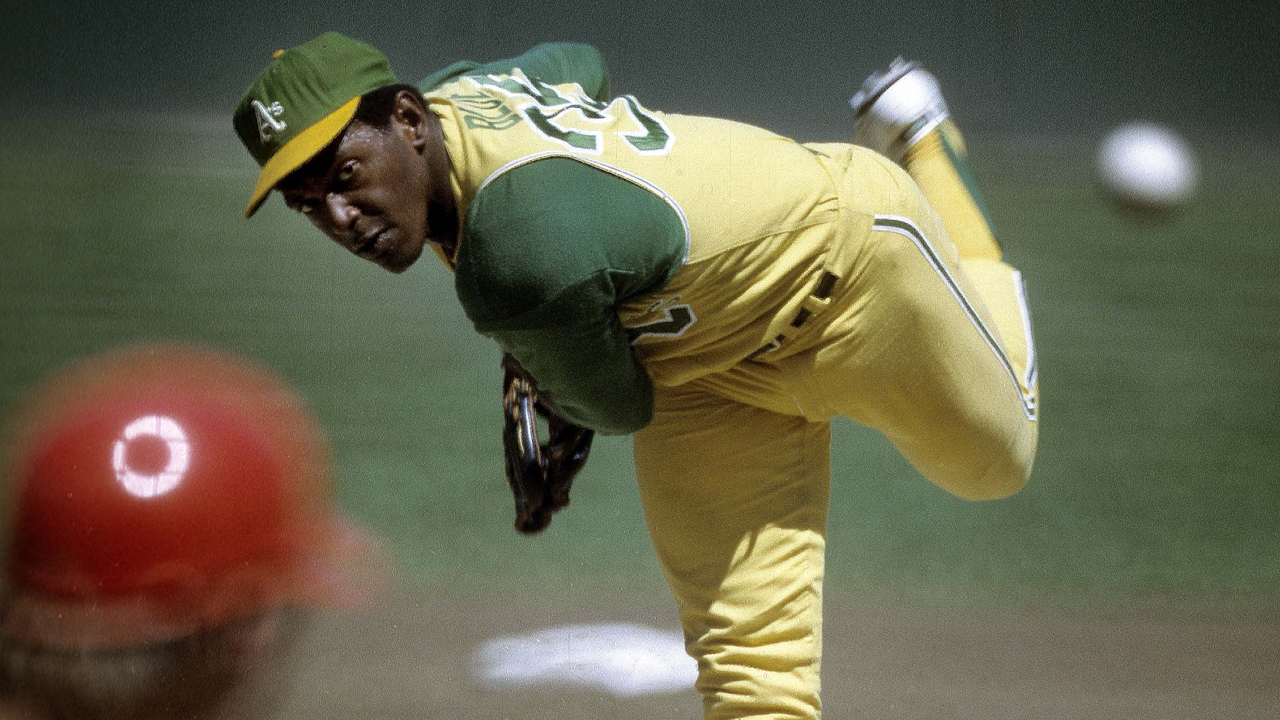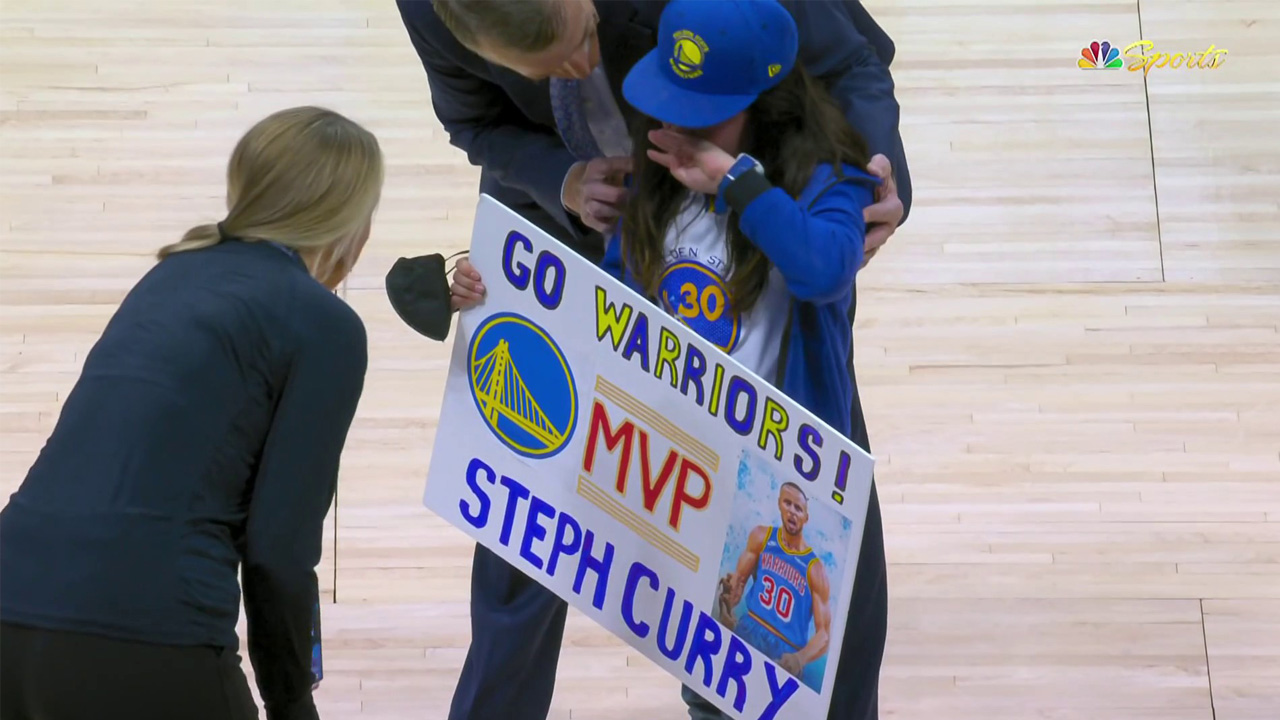The Choice: Trey Lance's 'no-brainer' choice vs. racial inequality originally appeared on NBC Sports Bayarea
- Programming note: Listen to "The Choice: Trey Lance" on 49ers Talk every Thursday for show segments leading up to the full TV premiere on Tuesday, Sept. 7, on NBC Sports Bay Area. In the final installment, Trey Lance joins the fight against racial inequality.
The memory of that May morning remains fresh and painful in Angie Lance’s mind.
Their two sons -- Trey, attending North Dakota State and a future No. 3 overall draft pick of the 49ers, and Bryce, a senior at Marshall (Minn.) High School -- were home during the early stages of the COVID-19 pandemic.
Each member of the family learned separately of George Floyd's murder by police officer Derek Chauvin just 150 miles away in Minneapolis. The video showing Chauvin kneeling on Floyd’s neck attracted immediate national attention.
“I’ve never watched the video,” Angie said. “I can't bring myself to watch it, but everybody in the house had watched it. And it was very somber in our house and I was just waiting.”
NBC Sports
As Angie recounted the experience, her husband, Carlton, who is Black, removed his glasses and wiped tears from his eyes.
Angie, who is white, knew how she wanted to address the tragedy the first time she saw her sons after Floyd’s murder. She wanted to emphasize to her biracial sons that the rules are different for them.
Get a weekly recap of the latest San Francisco Bay Area housing news. Sign up for NBC Bay Area’s Housing Deconstructed newsletter.
* * *
Whatever you do, always just do whatever you're told;
Remember, when you go somewhere, take your hood down;
Get a receipt;
If you're pulled over, keep your hands on the steering wheel and ask, “Can I get my wallet?"
* * *
Said Angie: “I just wanted to remind them again and again and again. But I couldn't say anything. I was kind of frozen.”
That conversation eventually took place, Angie said. Carlton expressed faith that the system would provide justice. The Lances prayed for Floyd’s family, everyone whose life has been impacted by racial inequality and for healing throughout the United States.
The Lance family was forced to confront many uncomfortable issues.
Trey and Bryce Lance were raised in the predominantly white rural farming town of Marshall.
“Obviously, I grew up differently than 90 percent of the people that I was around,” Trey said. “Me and my brother just grew up differently. Our household was different, and I knew that obviously from an early age. I can see that my skin color is different than everyone else’s.”
“I think I thought about it, but it was just something that I got used to at such an early age that it wasn't ever anything that I didn't feel I can’t handle.”
Said Bryce: “At AAU basketball tournaments, we witnessed a lot more diversity, mixed people that looked like me and Trey. We knew we were different, but we didn't feel out of place at Marshall. Our dad did a great job reinforcing that culture into us. The people we surrounded ourselves with were in full support of us, so we didn't feel out of place.”
Part 1 of "The Choice”: 49ers' Lance interest was secret worth keeping
Part 2 of "The Choice": Lance’s flawless freshman season built his NDSU legend
Part 3 of "The Choice": Lance's parents exemplify son's NFL dreams
Trey ended up back in Fargo, which is only marginally more diverse than Marshall.
He was coming off an incredible season in leading NDSU to the national championship with a 16-0 record. He threw 28 touchdown passes, rushed for 14 more and did not throw an interception. He became the first freshman to win the Walter Payton Award as the best offensive player in NCAA Football Championship Subdivision (formerly I-AA).
It was supposed to be only the start.
But that's not how it turned out, as COVID-19 forced many plans to change.
During the pandemic, Lance took part in peaceful protests in Fargo after Floyd's murder. Lance's participation gained widespread attention.
“He is by far one of the top-three most recognizable people in the city — could put him No. 1, probably,” WDAY sports director Dom Izzo said.
The Bison scheduled one game for the fall of 2020 after the pandemic pushed the NDSU football season to the spring.
It amounted to a showcase for Lance against Central Arkansas. Lance already was considered a top pro prospect, and it was a foregone conclusion he would declare for the 2021 NFL Draft after the game.
In his final time suiting up for the Bison, Lance wanted to make a statement -- regardless of how unpopular it might be with the NDSU fan base. So, the night before the game, Lance tweeted a photo of the cleats he'd wear.
“BLM,” for Black Lives Matter, was written on the cleats, along with “204,” for the number of days at that point since Breonna Taylor had been fatally shot by police in Louisville, Ky. The names of other individuals who died during police incidents also were written on the cleats.
The next day, Lance took a knee during the playing of the national anthem at the FargoDome. Then-49ers quarterback Colin Kaepernick began that form of protest against racial inequality and police brutality in 2016.
“That made some people mad,” Izzo said. “There's no doubt about it, and maybe some that still maybe will not root for him in the NFL because of what he did. I don't think he loses any sleep about that whatsoever. That's the man he is.”
Lance said he felt the support of his family, teammates and coaches. He wouldn't allow others to prevent him from doing what he believed was right.
“I don't really believe in athletes just sticking to sports,” Lance said. “I guess I don't really understand that. For me, I was standing up for what I believe in, and it really wasn't even a hard decision at all, to be honest. It was kind of a no-brainer for me.”
At that point, Lance already was virtually assured of being a first-round NFL pick. He was one of the most popular athletes in NDSU history despite his short career.
His father said watching his son use his platform to step outside the boundaries of sports filled him with a great sense of pride.
“I cried when he took that stance because I knew what it took,” Carlton Lance said. “People gave him some flack for it or whatever. They will never know what it took for him to do that, to take that stance for people he did not know.”



